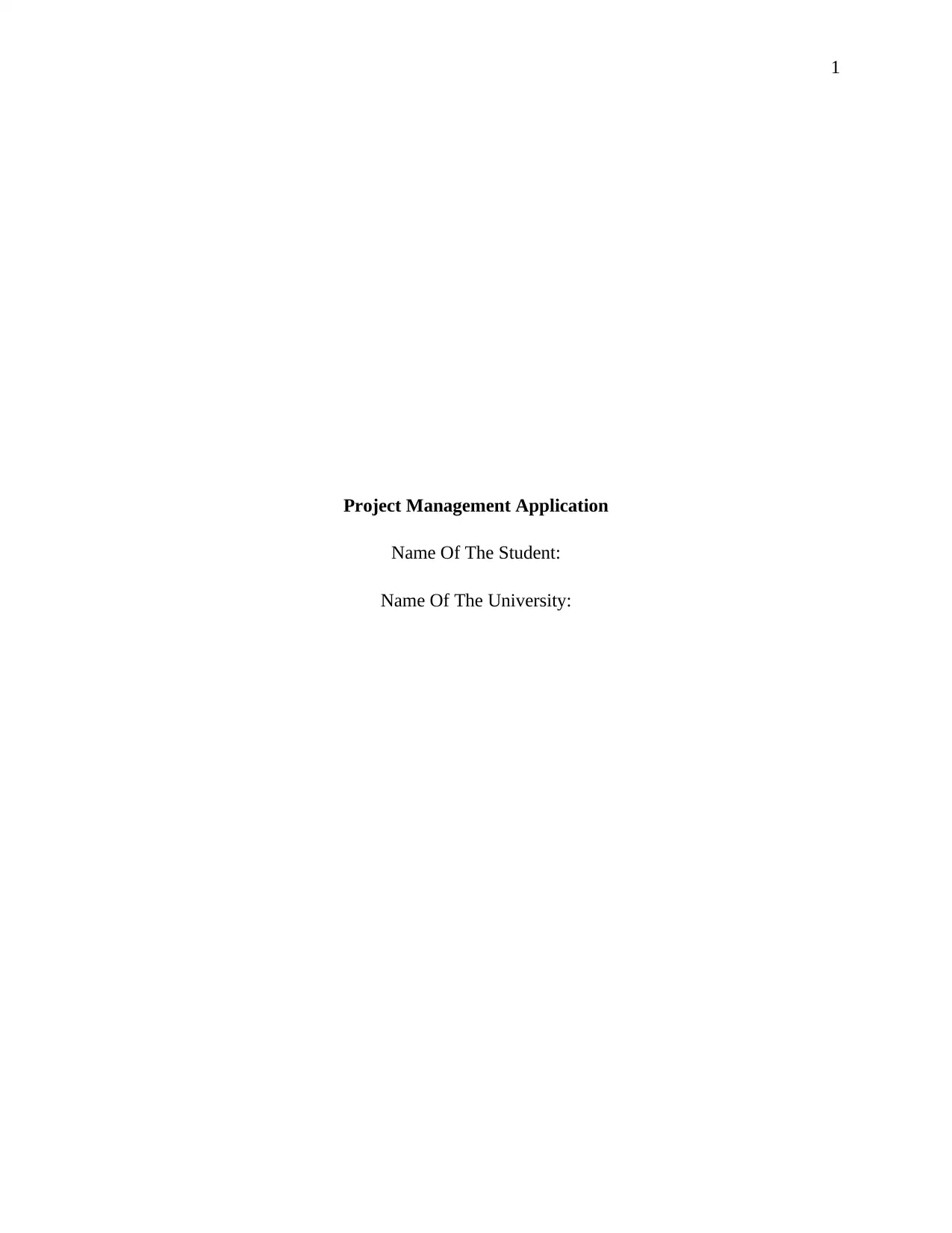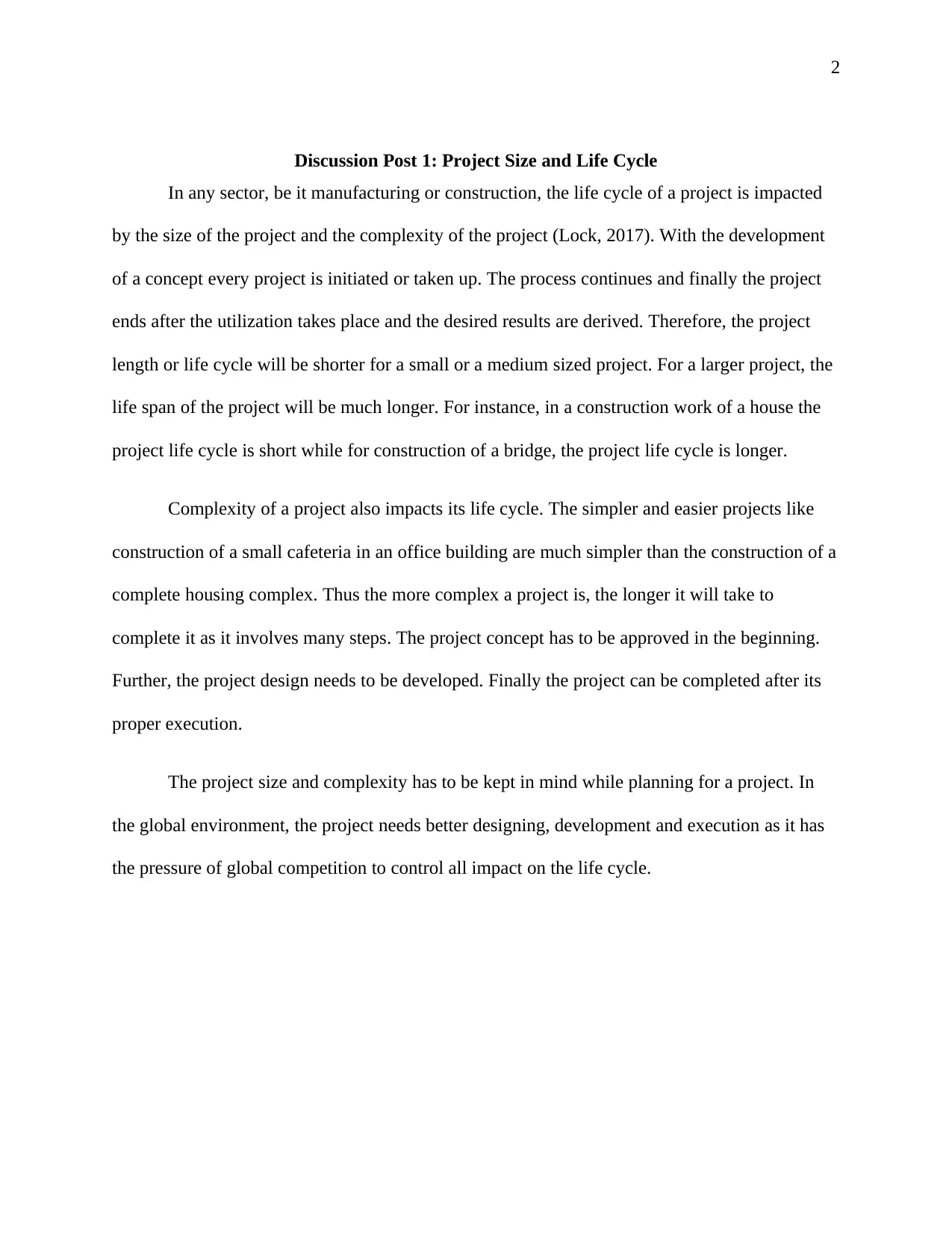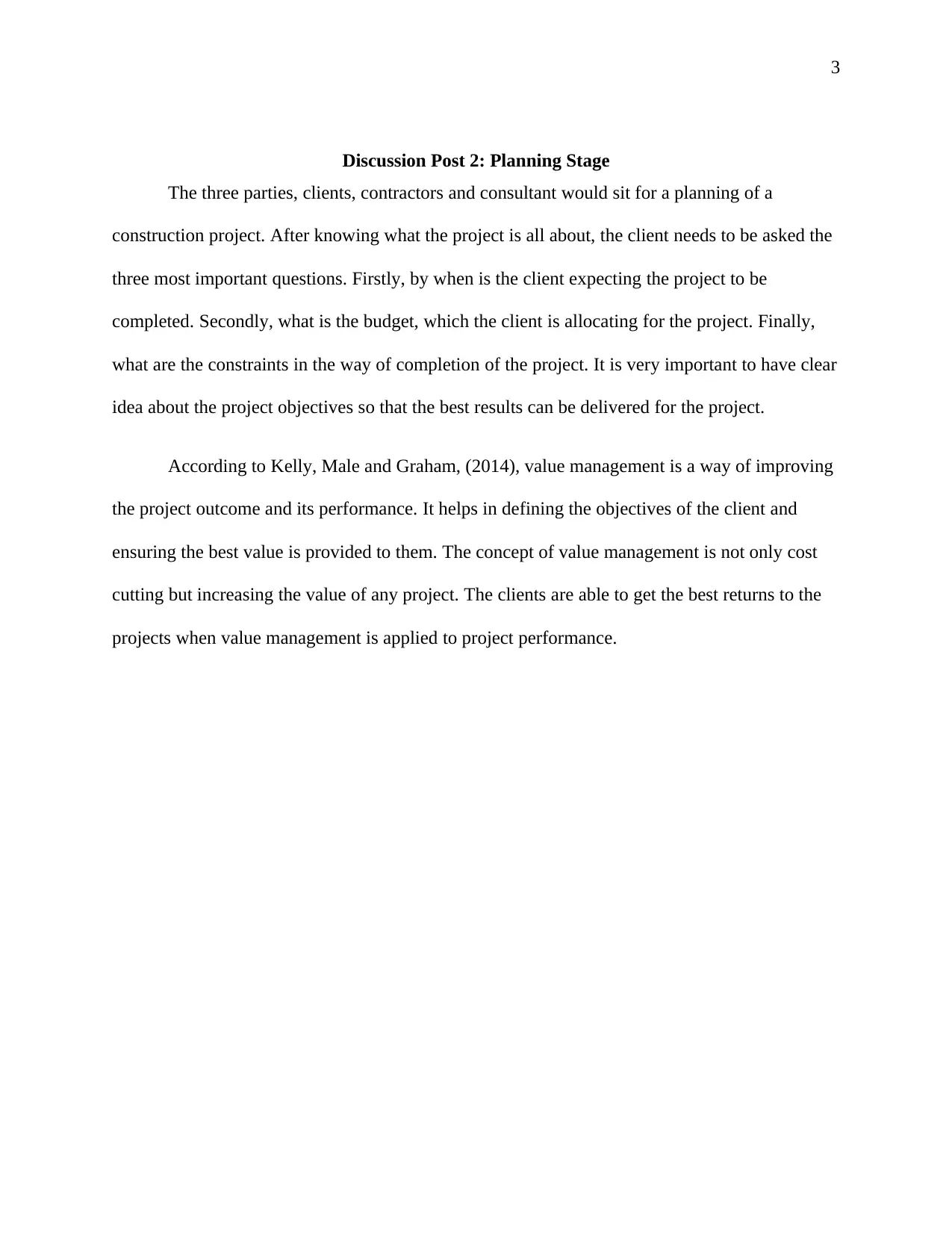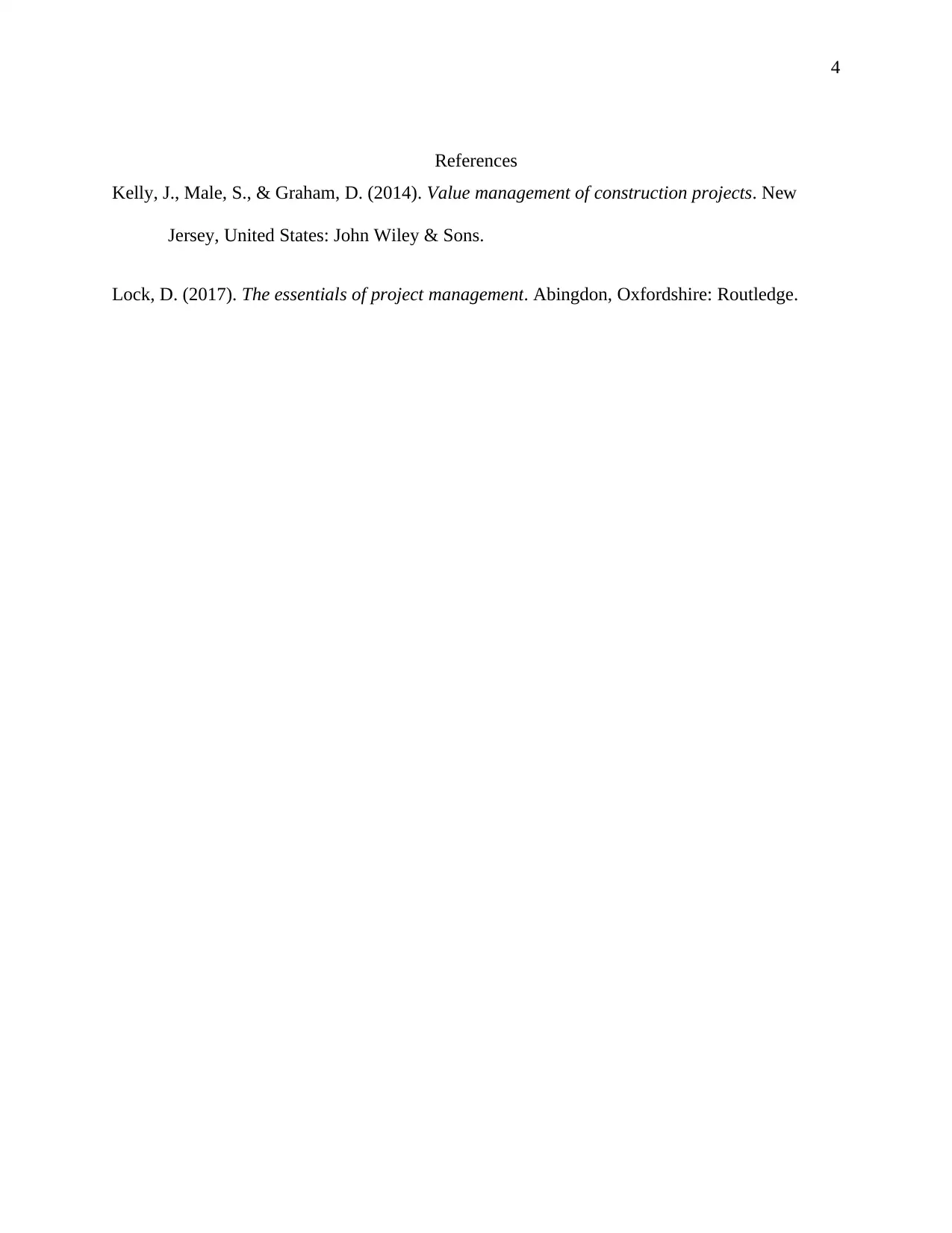Project Management Discussion: Size, Life Cycle & Planning Stage
VerifiedAdded on 2023/06/03
|4
|553
|275
Discussion Board Post
AI Summary
This assignment consists of two discussion posts related to project management. The first post discusses the impact of a project's size and complexity on its life cycle, emphasizing that larger and more complex projects have longer life cycles due to the increased number of steps involved from concept to execution. The post suggests that global projects require better design, development, and execution to manage the pressures of global competition. The second post focuses on the planning stage of a construction project, highlighting the importance of understanding the client's expectations regarding project completion, budget, and constraints. It also discusses how value management, which aims to improve project outcomes and performance by defining client objectives and ensuring the best value, can enhance project returns by focusing on increasing value rather than just cost-cutting. The discussion references the works of Kelly, Male, and Graham (2014) and Lock (2017) to support its points.
1 out of 4







![[object Object]](/_next/static/media/star-bottom.7253800d.svg)